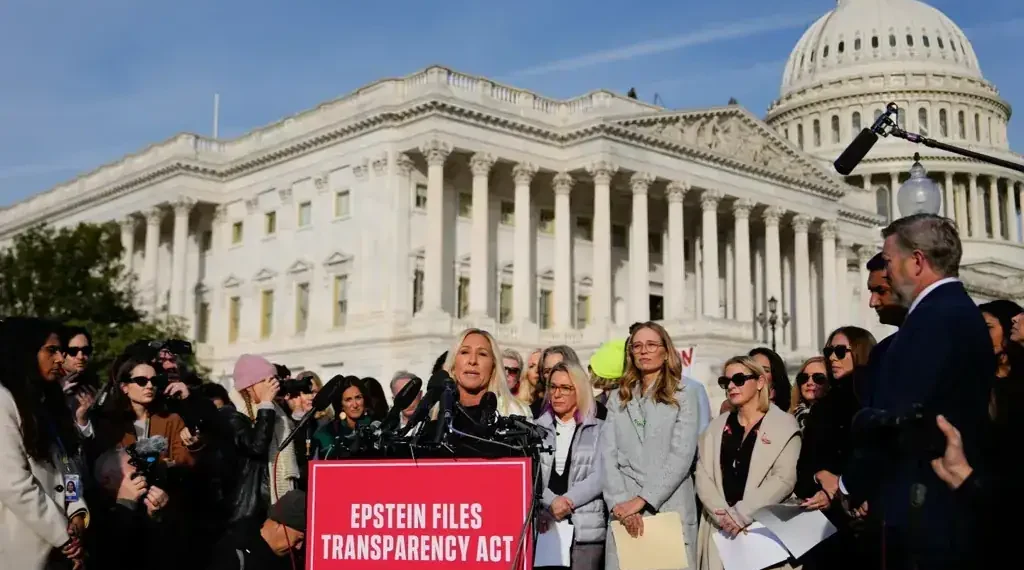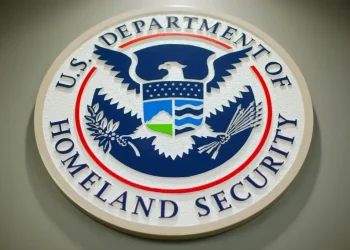Congress Passes Bipartisan Bill to Release Epstein Files Despite Earlier Opposition
U.S. lawmakers approved a sweeping bipartisan measure ordering the Justice Department to disclose its files on Jeffrey Epstein, delivering a major victory for survivors who have pressed for transparency for years. The rapid action capped months of political tension, shifting positions, and mounting public pressure on the Trump administration and congressional leaders.
Congress Moves Swiftly on Epstein File Disclosure
The U.S. Congress moved with rare unanimity on Tuesday, passing legislation that compels the Justice Department to release its full case files on Jeffrey Epstein within 30 days. The measure, long stalled by political resistance, surged forward after an unexpected wave of bipartisan support in both the House and Senate.
The House approved the bill 427–1, with the sole dissenting vote cast by Representative Clay Higgins of Louisiana, who argued that unredacted disclosures could jeopardize individuals who were referenced but never charged. Within hours, Senate leaders signaled they would adopt the measure through unanimous consent once procedural steps are completed.
The legislation marks the most forceful congressional intervention to date in the yearslong push to illuminate federal handling of Epstein’s case, his network of associates, and the circumstances surrounding his 2019 death in a Manhattan federal detention center.
Months of Political Resistance Collapse Under Pressure
Initial efforts to advance the bill appeared unlikely to succeed when a bipartisan group of House lawmakers filed a discharge petition in July, attempting to bypass House leadership. At the time, President Donald Trump publicly dismissed the proposed disclosure requirements as a “hoax,” while House Speaker Mike Johnson resisted bringing the bill to a floor vote.
Despite early hurdles, support grew steadily among lawmakers, survivor advocacy groups, and even segments of the Republican base. As momentum built, the Trump administration reversed its stance. Trump announced on Sunday that Republicans should support the bill, clearing the way for near-unanimous passage.
Speaker Johnson also shifted his position, allowing a vote under a procedure requiring two-thirds approval. Although Johnson criticized potential unintended consequences relating to privacy protections and investigative integrity, he ultimately voted in favor, stating that lawmakers “did not want to be accused of opposing maximum transparency.”
Survivors Rally as Public Demands Transparency
Outside the Capitol, survivors of Epstein’s abuse gathered ahead of the vote, urging lawmakers to end years of political standoffs. Wrapped in coats against the November cold, several held photographs of their teenage selves — a powerful reminder of the human impact behind the policy debate.
“We are exhausted from surviving the trauma and then surviving the politics that swirl around it,” one survivor told reporters.
Another survivor, Jena-Lisa Jones, who previously supported Trump, publicly called on him to stop framing the disclosure effort as a political attack, saying, “I beg you, Donald Trump, please stop making this political.”
Their presence underscored the frustration that had grown over repeated delays. A key hold-up occurred during the government shutdown earlier this year, when Johnson kept the House closed for legislative business and postponed the swearing-in of Representative Adelita Grijalva of Arizona. Grijalva’s vote was essential to reaching the 218 signatures required for the discharge petition. She signed the petition only after officially taking office last week, ensuring the bill’s advancement.
What the Bill Requires
The legislation mandates the release of all federal files, communications, and investigative materials related to Epstein, including documents tied to the probe into his death. The Justice Department may redact details that would reveal the identities of victims or interfere with ongoing investigations, but the bill explicitly prohibits withholding information due to reputational concerns or political embarrassment.
Lawmakers who sponsored the bill — Republican Thomas Massie of Kentucky and Democrat Ro Khanna of California — said the intent is clear: to provide public accountability after years of questions about Epstein’s connections and the failures that allowed him to continue operating for so long.
A separate House Oversight Committee inquiry has already released thousands of pages of documents from Epstein’s estate, revealing communication patterns involving high-profile business executives, political figures, and global leaders. In the United Kingdom, King Charles III previously stripped Prince Andrew of his royal duties following scrutiny over his association with Epstein.
Congressional Leaders React to Rapid Passage
The bipartisan vote prompted rare agreement across the aisle. House Democratic Leader Hakeem Jeffries described the outcome as “a complete and total surrender” by those who had tried to block the effort. Meanwhile, Speaker Johnson continued to warn that the Senate should consider amendments to further safeguard sensitive information relating to victims and whistleblowers.
Senate Majority Leader John Thune, however, signaled little appetite for making changes, stating that amendments were “unlikely to be in the cards.” He said the Senate could fast-track approval as soon as Tuesday evening, adding that lawmakers needed to act quickly due to public expectations.
Senate Democratic Leader Chuck Schumer also emphasized urgency, saying, “The American people have waited long enough.”
Sponsors Warn Against Delays in the Senate
Representatives Massie and Khanna urged senators not to alter the bill, warning that any changes could reignite the delays that have frustrated survivors and eroded public trust. “We’ve needlessly dragged this out for four months,” Massie said, adding that concerns about reputational harm only reinforce the need for full disclosure.
As Congress moves to finalize the legislation, the Justice Department will soon face a strict timeline to prepare the documents for public release — a process expected to draw significant global attention.
This article was rewritten by JournosNews.com based on verified reporting from trusted sources. The content has been independently reviewed, fact-checked, and edited for accuracy, neutrality, tone, and global readability in accordance with Google News and AdSense standards.
All opinions, quotes, or statements from contributors, experts, or sourced organizations do not necessarily reflect the views of JournosNews.com. JournosNews.com maintains full editorial independence from any external funders, sponsors, or organizations.
Stay informed with JournosNews.com — your trusted source for verified global reporting and in-depth analysis. Follow us on Google News, BlueSky, and X for real-time updates.














